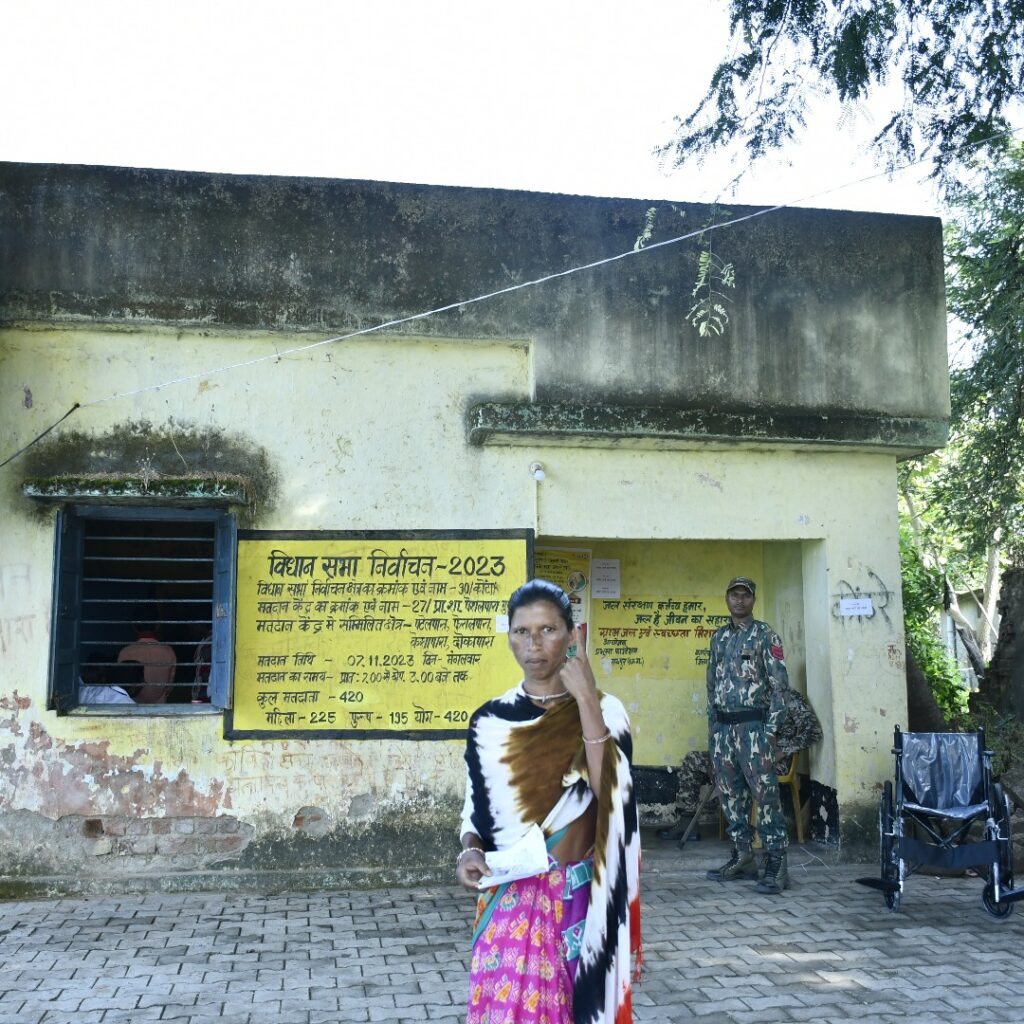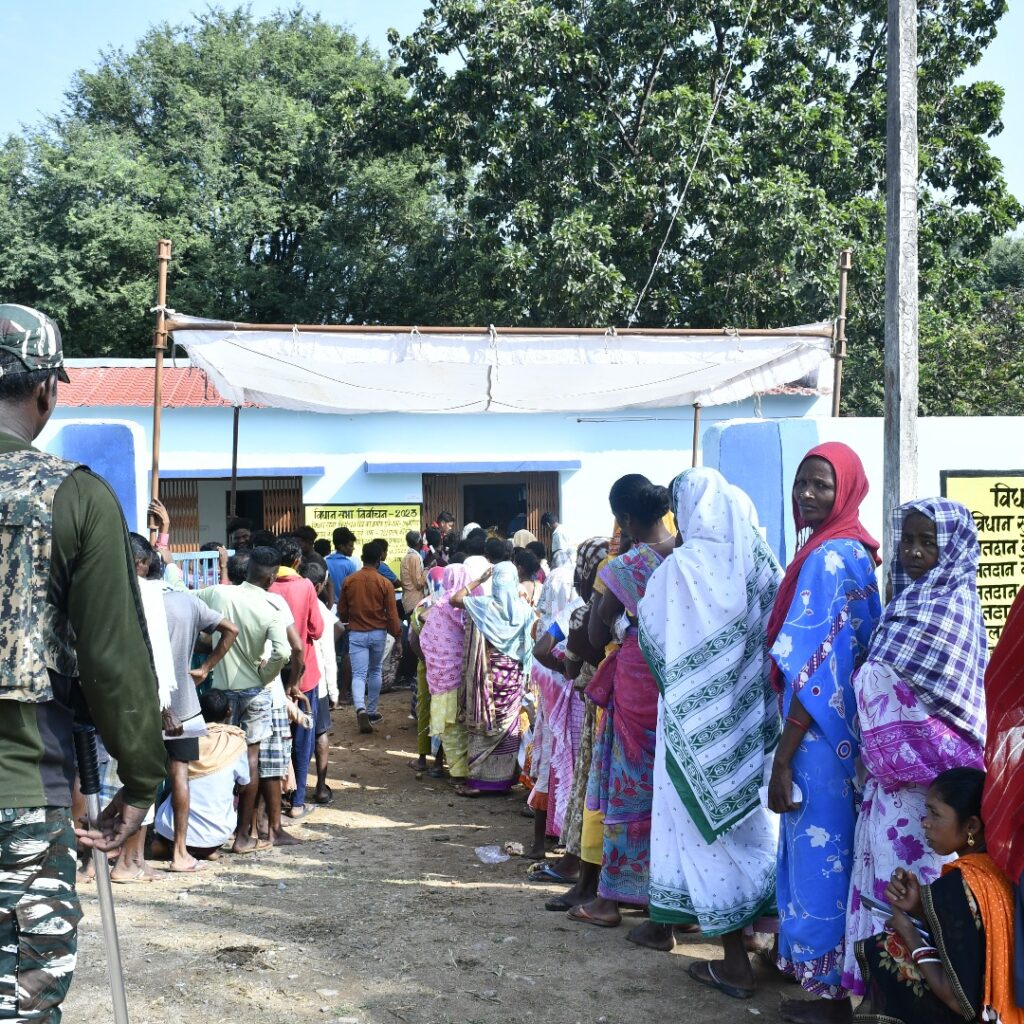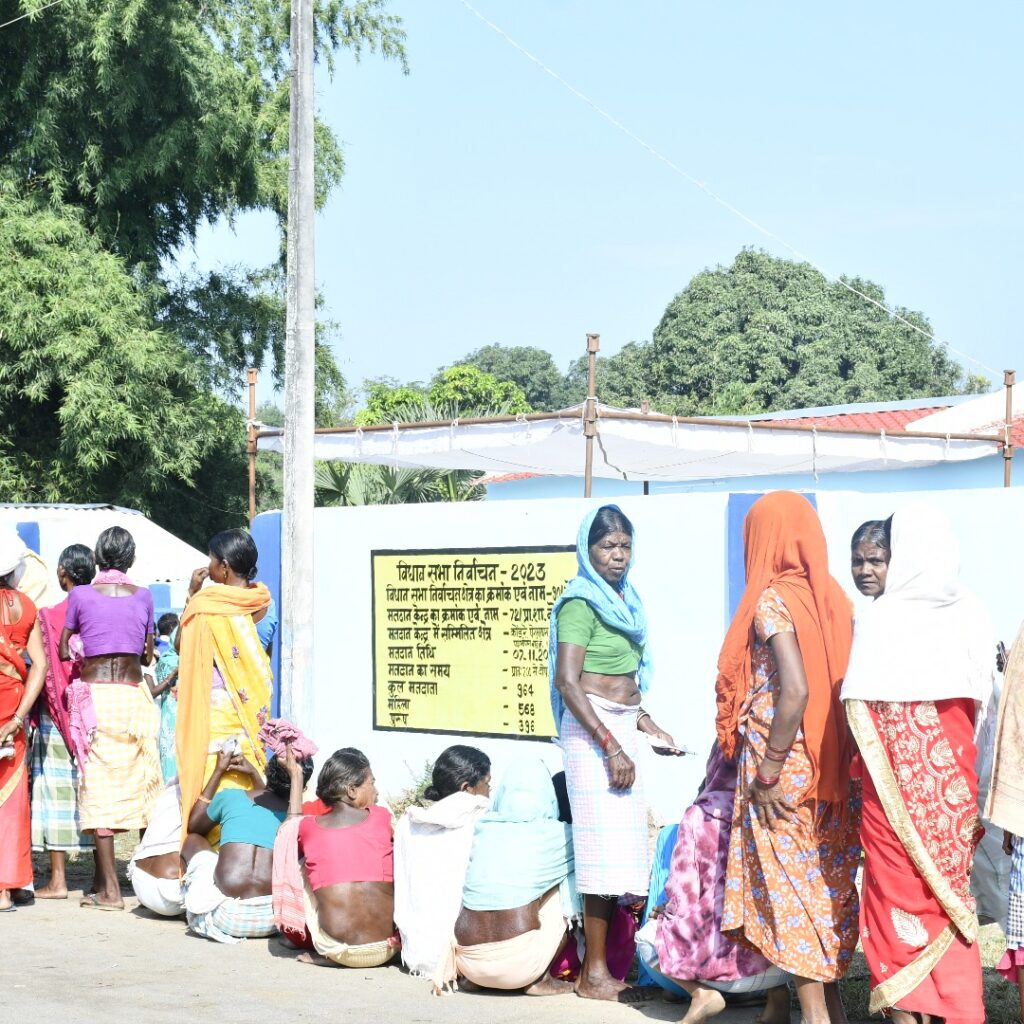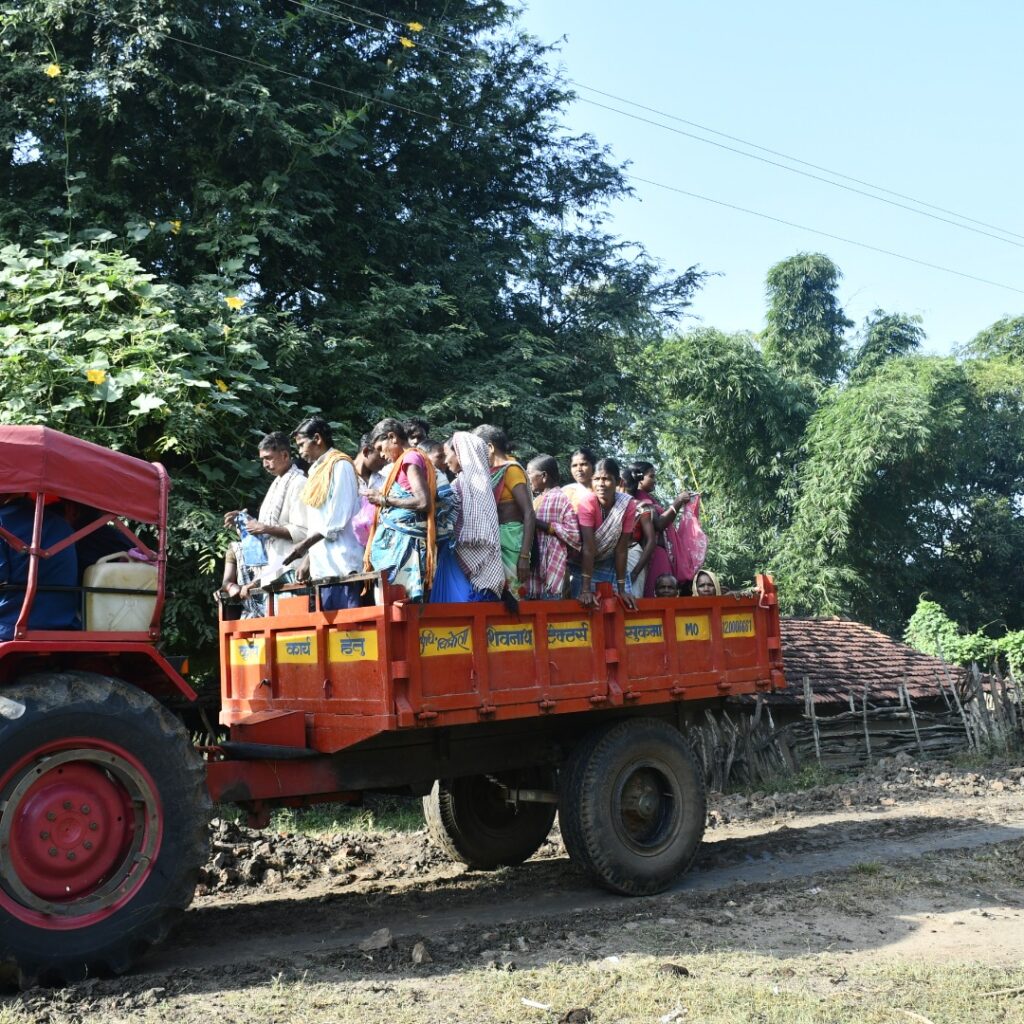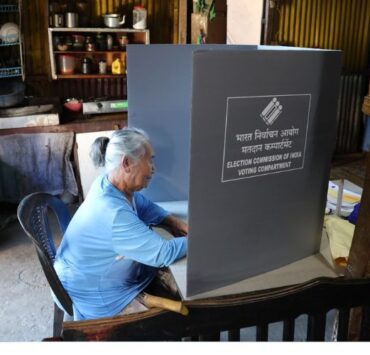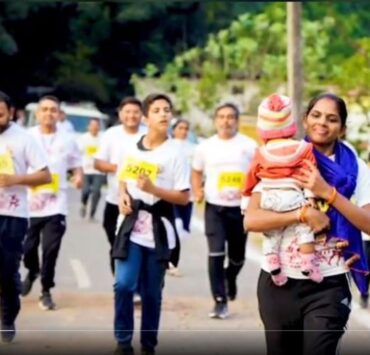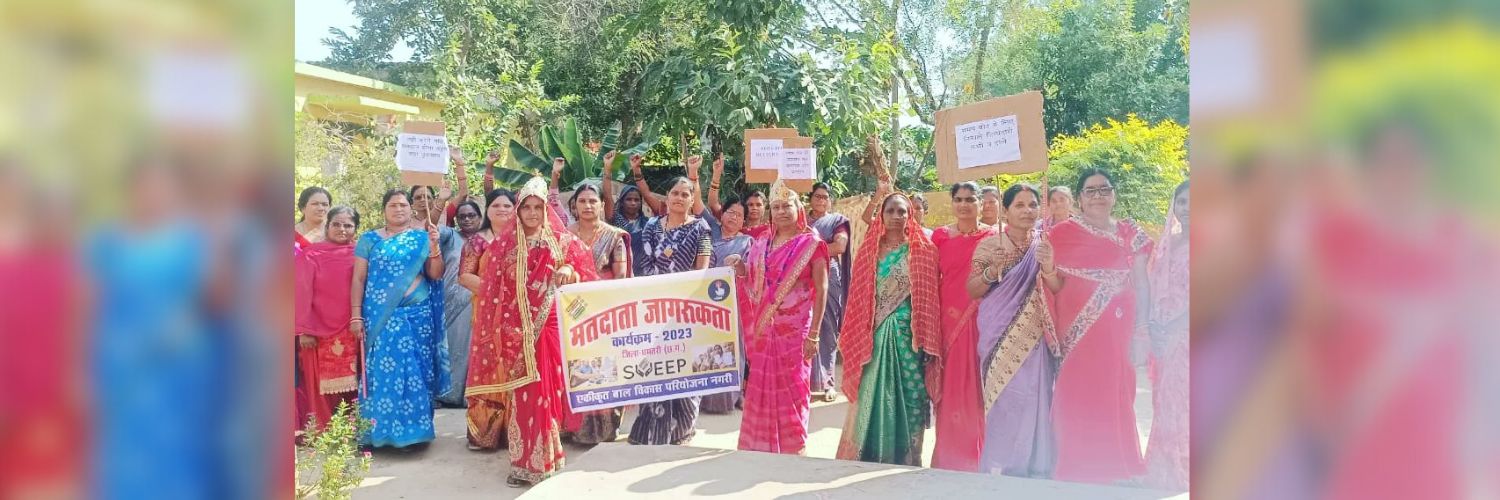
By Malini Subramaniam
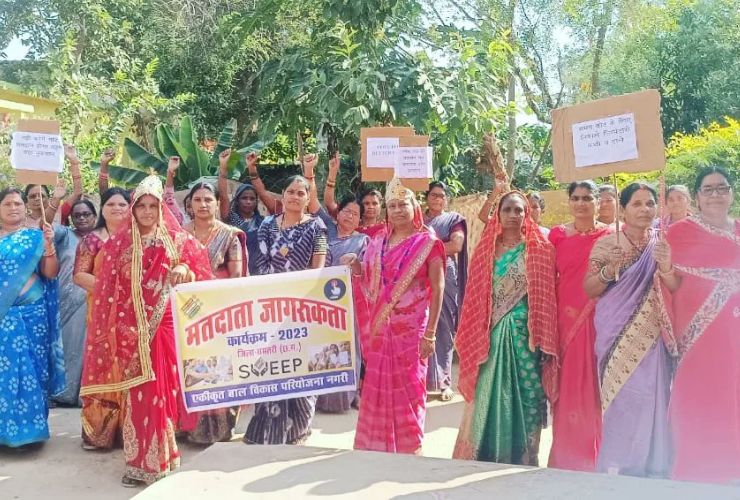
Twenty of the 90 seats in Chhattisgarh will go to the polls in the first phase of the state Assembly election on 7 November. The second phase, for the remaining 70 seats, will be held on 17 November. For now, we will focus on the first phase.
Of the first set of 20 constituencies going to the polls, 12 are located in the restless Bastar region, covering seven districts, while eight are in the neighbouring districts of Rajnandgaon, Kabirdham and Khairagarh. Of these 20 seats, 12 are reserved for candidates belonging to the Scheduled Tribe category and one for Scheduled Caste candidates.
Interestingly, female voters (20.85 lakhs) far outnumber male voters (19.94 lakhs) in these constituencies. Yet, of the total of 223 contestants for the 20 seats, the number of female candidates is an abysmally low 20 – which amounts to less than nine per cent.
Nevertheless, it must be mentioned that there has been an encouraging increase in the number of women MLAs in Chhattisgarh over the years. While only five women were elected to the Assembly in 2003, the number rose to 11 in 2008, dropped slightly to 10 in 2013 and again rose to 13 in 2018. How many women will be successful in 2023 will be known only on 3 December, when the results are expected to be announced.
Political parties have been conservative about bringing women candidates to the forefront. For instance, the two major contesting parties, the Indian National Congress (INC) and the Bharatiya Janata Party (BJP) have given tickets only to three female candidates each. While the Congress has fielded one Adivasi (ST) woman, one Scheduled Caste woman and one for a general (unreserved) seat, the BJP has fielded one Adivasi woman and two women in the general category.
Both the Congress and the BJP appear to have focused on the ‘winnability’ of their candidates before giving them tickets. Here’s a quick look at some of their women candidates in the first phase of the state election.
Women candidates fielded by the Congress
The INC has given tickets to three women this time. However, the party also dropped three sitting women MLAs and did not replace them with female candidates.
The Congress’ Adivasi candidate for Bhanupratappur, Savitri Manoj Mandavi, was not as much a choice as compulsion. The death of her husband, Manoj Mandavi, the two-term MLA from Bhanupratappur and Deputy Speaker in the Assembly, in October 2022 necessitated a bye-election. The Congress roped in Savitri Mandavi, his wife and a government schoolteacher, who garnered a massive victory last year. The party is now fielding her again, expecting her to retain the seat and carry forward her husband’s legacy.
There is a similar history to the entry of a female candidate, Yashoda Nilamber Verma, into the fight for the general seat in Khairagarh. Verma, who comes from a humble background, showed promise as she rose from being the Sarpanch of her village’s Gram Panchayat to positions at the Block and later District levels of the three-tier Panchayat Raj system. Seeing potential in her, the party appointed her as the Block Congress President.
A bye-election was necessitated by the sudden death in 2021 of MLA Devvrat Singh, a four-time legislator from the erstwhile royal family of Khairagarh, who was in the INC till 2017 but then joined the Janata Congress Chhattisgarh (Jogi) party and contested the 2018 elections as a JCCJ candidate. The Congress sought to counter the situation by fielding a female candidate, fearing that the wife of the deceased MLA would draw away sympathy votes.
It was a tough fight but Verma, with alleged support from her ‘samaj’ and full backing from the Congress, won the seat from the rival BJP candidate by over 20,000 votes. This time Verma has to brace to fight Vikrant Singh, nephew of the ex-Chief Minister Raman Singh of the BJP.
In the scheduled caste reserved constituency of Dongargarh, the Congress has fielded Harshita Swami Baghel, who has been groomed in a family of politicians. Her late grandfather, Tuman Lal Baghel, had been a long-time Congress worker and won the Dongargarh seat in 1980. Although a first-time contester, 35-year-old Harshita Baghel has had the experience of being a Zila Panchayat member.
Women candidates fielded by the BJP
The BJP has fielded one Adivasi woman and two women in general seats.
In Bastar region’s Kondagaon, the party has fielded its longstanding Adivasi MLA, Lata Usendi, who lost to Congress’ Mohan Markam in 2013 and 2018. A seasoned politician, Usendi has been contesting the Kondagaon seat since 2008, losing twice. She served as Minister, Women and Child Development, in the BJP government that ruled the state for 15 years until 2018. This time her position is rumoured to be very strong.
The candidate standing for election from the Pandariya constituency in Kabirdham district is 41-year-old Bhawna Bohra, considered close to ex-Chief Minister Raman Singh. Bohra is reported to be popular among the youth as she has demanded free bus service for college going students. She is also a first-time contender but is well versed with party functioning thanks to her experience as a Zila Panchayat member. She is pitted against the Congress’ male candidate, Neelkanth Chandravanshi. The previous winning candidate for the Congress, Mamta Chandrakar, who was dropped because of charges against her, is reportedly upset about this.
The BJP has fielded their youngest candidate, 37-year-old Geeta Ghasi Sahu, in Rajnandgaon district’s Khujji constituency. Sahu is a first-time contester but has been Sarpanch of her village in addition to having been active in party politics over the past three years, along with her husband, who is the district in-charge for BJP.
Women candidates fielded by other political parties
Dalits in Chhattisgarh constitute 12.8 per cent of the total population. Although the percentage of Dalits in the constituencies going to the polls in the first phase is low, the Bahujan Samaj Party (BSP) has always fielded candidates from Bastar as well as central Chhattisgarh, where the population of Dalits is higher. Although the number of seats won by the BSP is low (two in 2018), the party garners a sizeable vote share. During the last election, close to 10 per cent of the vote share went to the BSP.
In the 20 constituencies going to polls on 7 November, the BSP has fielded 14 candidates. One of them is a woman, Bindoo Phule, who will fight the Assembly election from Rajnandgaon. It is worth noting that Rajnandgaon is ex-Chief Minister Raman Singh’s long-standing constituency.
Several new political parties – such as the Azad Janata Party, the Bharatiya Shakti Chetna Party, the Hindustan Janta Party, Republican Paksha and Shakti Sena – have also fielded female candidates.
Conversations with some of the women in the fray, including the one from Jagdalpur, where this reporter is based, reveal that most of them have been working with self-help groups and have become leaders of SHG associations. Unfortunately, despite persistent efforts to contact her, Phule could not be reached. Most of the candidates speak of women’s economic empowerment as their main goal, in addition to education for girls and getting government schemes for women.
Parties such as the Aam Aadmi Party (AAP) and the Janata Congress Chhattisgarh (Jogi) have roped in women who wish to raise women’s concerns on safety, as well as economic and social empowerment, in the Assembly.
Take for instance, Bela Telam, an Adivasi woman fighting from Bastar’s Dantewada district on a ticket provided by the JCCJ. Although she has been associated with SHGs, her fight has been against the chit fund companies operating in her district. The entire state was gripped in a chit fund scam during the BJP government’s tenure. Telam had filed a petition in the High Court seeking return of funds to those who had lost their money in her district. The Congress promised to take strict action against agents but did a U-turn soon after it came to power. Although some money has been released, her district has not benefitted. “No one in the district is raising this raging issue. So I have decided to take the real issues of the people into the Vidhan Sabha,” she said.
The Aam Aadmi Party’s candidate in the Pandariya constituency, 38-year-old Chameli Kurre, is a first time contester. Interestingly, there are 14 candidates standing from Pandariya; four of them are women – three fielded by the BJP, Congress and AAP, and one standing as an independent candidate.
Hamar Raj Party is a new party floated by the Adivasi Samaj. The Adivasi community has for long been with the Congress party but became disillusioned over time, especially about land and forest issues. This is despite the fact that in 2022 the Congress government notified rules for the implementation of the Panchayat (Extension in Scheduled Areas) Act (PESA)-1996, fulfilling a poll promise made during the 2018 elections.
The Hamar Raj Party was floated to specifically raise the concerns of all Adivasi communities in the state and has fielded Adivasi candidates to fight for seats reserved for STs. In Khujji, which is part of Rajnandgaon District, the party has put up an Adivasi woman, Lalita Painkra, as the candidate.
Most experts believe that although the party might garner support it may not actually win seats. However, it would likely make dents in the vote share of the Congress, thereby benefitting the BJP. This is no doubt a source of worry for the Congress.
Lalita Kanwar’s candidature is to be seen from this perspective. According to her, Khujji has a large percentage of Adivasi voters and their concerns are never heard by the major parties. Having been a District Panchayat president, she is familiar with the concerns of Adivasis in her region. According to her, they hardly ever benefit from government schemes, including schemes for paddy procurement, or even from the individual and community forest land entitlements granted to Adivasis under the Forest Rights Act.
Another important issue that her party and she will be rigorously fighting on is the appropriate representation of Adivasis in every field of activity. According to her, a major concern is that while Adivasis constitute about 32 per cent of the total population of the state, they are hardly visible in a number of fields of employment, such as the government, business, the judiciary and many other such areas.
Unfortunately, since her name was put forward by the party only a couple of weeks ago, she has found it difficult to reach out to voters in interior villages with the message. Nevertheless, she said, she is doing her best.
Women fighting elections as Independent candidates
The number of women fighting as independent candidates this time is relatively high: eight. What is equally striking is the fact that most women are first time candidates. But with 72 men standing as independent candidates, women constitute only 11 per cent of the total number. Of the eight female candidates, only one – Jyoti Dhuruva – is contesting in the Bastar region, standing for election in the Bijapur constituency (reserved for STs).
A brief conversation with some of the women reveals their ‘junoon’ (drive) to raise issues that concern the people of their community.
“I may be young and inexperienced, but I have the urge to do something for the youth in my region,” said 28-year-old Jyoti Dhuruva, from the interior region of Awapalli. Dhuruva explained that she had to discontinue her education after her first year in college. “Most of my friends have also dropped out and it pains me to see the poor education imparted to Adivasi children here,” she lamented.
Dhuruva had joined the Aam Aadmi Party (AAP), which has been trying to make inroads into the state since 2013, in order to gain an understanding of party politics. However, since they did not distribute tickets to any candidates this year, she decided to go solo. “I know I may not win,” she said, “but fight I must.”
Dhuruva is standing for election from a reserved constituency, but the rest of the women standing as independent candidates are fighting for general seats. This is despite the inhibitions among Adivasi women about entering the electoral arena on their own as independents.
Dipa Love Ramteke is a High Court advocate and filed her candidature from her native place, Rajnandgaon. Asked what motivated her to enter electoral politics, she said, “I have been fighting cases of atrocities against women and others. And over several years I see a pattern emerging of similar cases. I feel tired and think there is a need to bring in policy level interventions in order to have an effective way of addressing such concerns.” According to her, none of the parties, including the major ones, are interested in bringing about the larger good, but instead want to just beat around the bush. She wants to tell her people, her clients, that she is serious and that, if she wins, she will raise such pertinent matters in the Assembly.
Laxmi Satyavanshi, the 31-year-old independent candidate from Kawardha, decided to stand as one when she realised that the Congress party, with whom she had been associated for the last five years, was only paying lip service to various issues. According to her, youngsters, especially the educated youth, are upset with the government. “As someone struggling to get through competitive exams, I know how difficult it is,” she added. Examinations not being conducted on time or being rescheduled at the last minute, fake certificates being issued and several other such concerns completely ruin the lives of the educated young people, she pointed out. Satyavanshi wants to bring such concerns of the state’s young population into the state Assembly.
More women in politics: the need of the hour
According to the 2021 report of the National Crime Records Bureau (NCRB), Chhattisgarh accounts for the third highest rate of rapes of minors girls and fourth highest rate of all cases under POCSO (Protection of Children from Sexual Offences Act) across the country. In fact, incidents of sexual assault against minor school girls have been reported even from government run residential girls schools. In 2021 alone, 4919 cases of crimes against women were registered in the state, including 1,093 incidents of rape involving adult women.
Merely launching campaigns for women’s safety under various names is unlikely to make much impact. The situation is more likely to change if more and more women enter the Assembly and bring their safety concerns into the legislature, seeking more robust measures for the security of women in their constituencies.
Malini Subramaniam is an independent investigative journalist. She has reported widely from Chhattisgarh and is the recipient of the CPJ 2016 International Press Freedom Award.
Photographs from Malini’s coverage of Chhattisgarh Assembly election 2023:



